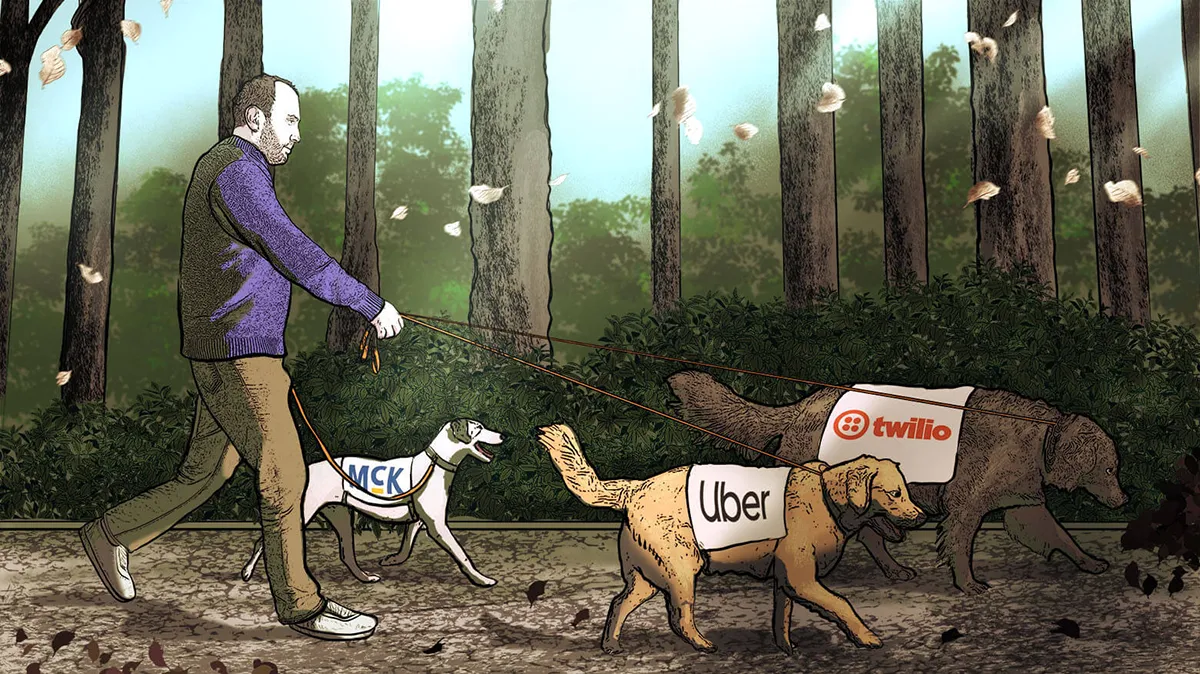A client asked whether there is a difference in our sell discipline between high- and low-growth companies.
Selling is one of the hardest parts of investing. I wrote a lot on the subject in the past, but let’s zoom in on how our selling practice differs between high-growth companies with long runways for compounding and slow-growth companies.
Let’s take McKesson, for example, MCK grows revenues 3%, maybe even 5%, a year (depending on drug price inflation). Its earnings growth will be helped by MCK buying back its stock. This will add another 3–8%, depending on the valuation of the stock (the cheaper the stock the more shares it can buy). When we look at McKesson’s earnings four years out, we have a relatively narrow range of fair values for the company. As the stock starts approaching our middle-of-the-road fair value, we’ll start decreasing our position. As it gets to the higher end of fair value, we’ll sell the full position. The difference between the low and high fair values for these two scenarios will probably be 15–25% or so. MCK is a very stable and predictable business. We may sell it in halves, thirds, or quarters. This is not a science but an art.
Then we’ll have companies that are run by owner-operators that have a high return on capital and a long growth runway. Let’s call them perennial compounders. With these types of companies we need to be more patient with our sell discipline than with McKesson. This combination of owner-operator (especially when he/she has skin in the game), high return on capital, and opportunities to reinvest this capital often surprises us with an upside scenario. We are a lot more patient (and forgiving) with this type of company.
We keep companies like McKesson on a relatively short leash. For companies like the perennial compounders we need to use a longer leash, one of those extendable leashes.
Key takeaways
- Sell discipline needs to be adjusted based on a company’s growth profile – you can’t use a one-size-fits-all approach when deciding when to exit positions.
- For predictable, slow-growth companies like McKesson, there’s a relatively narrow band of fair values to work with, making it easier to establish clear sell points as the stock approaches the higher end of that range.
- Low-growth companies are kept on a “short leash,” with positions typically reduced systematically (in halves, thirds, or quarters) as they approach fair value ranges of typically 15-25%.
- Perennial compounders – companies with owner-operators, high returns on capital, and long growth runways – deserve more patience and an “extendable leash” in your sell discipline.
- These higher-growth companies often have more potential for positive surprises due to the combination of aligned management incentives and reinvestment opportunities, justifying a more forgiving approach to selling.









0 comments